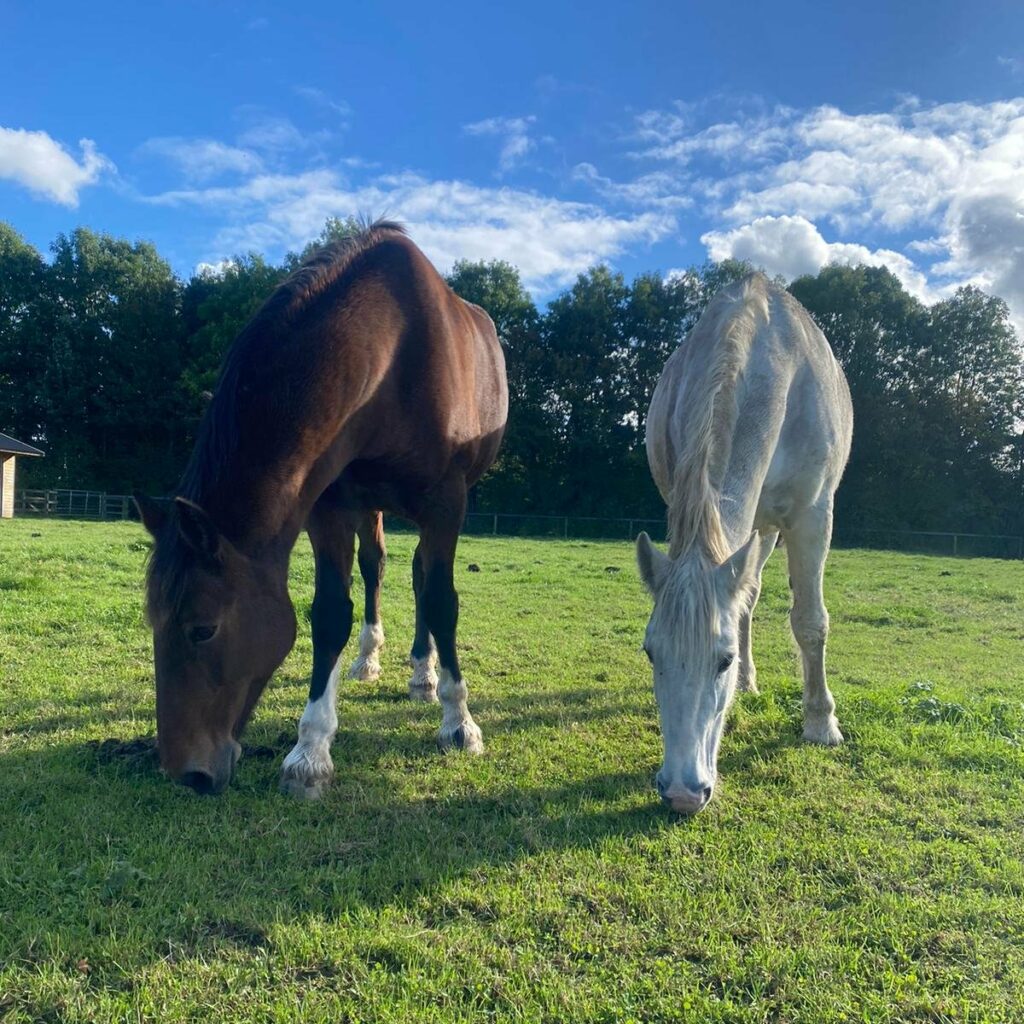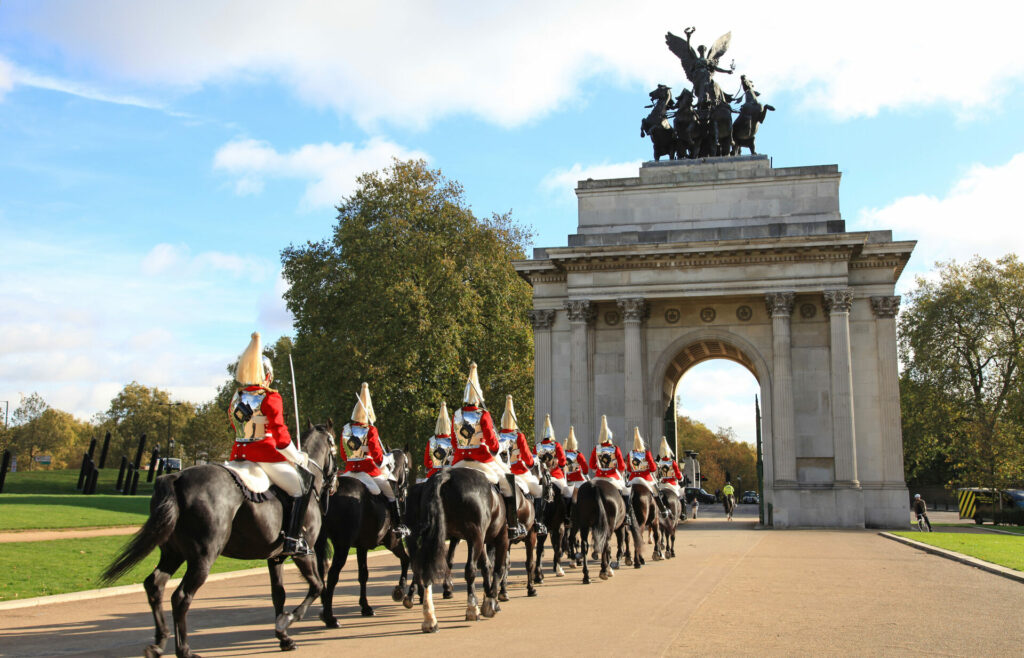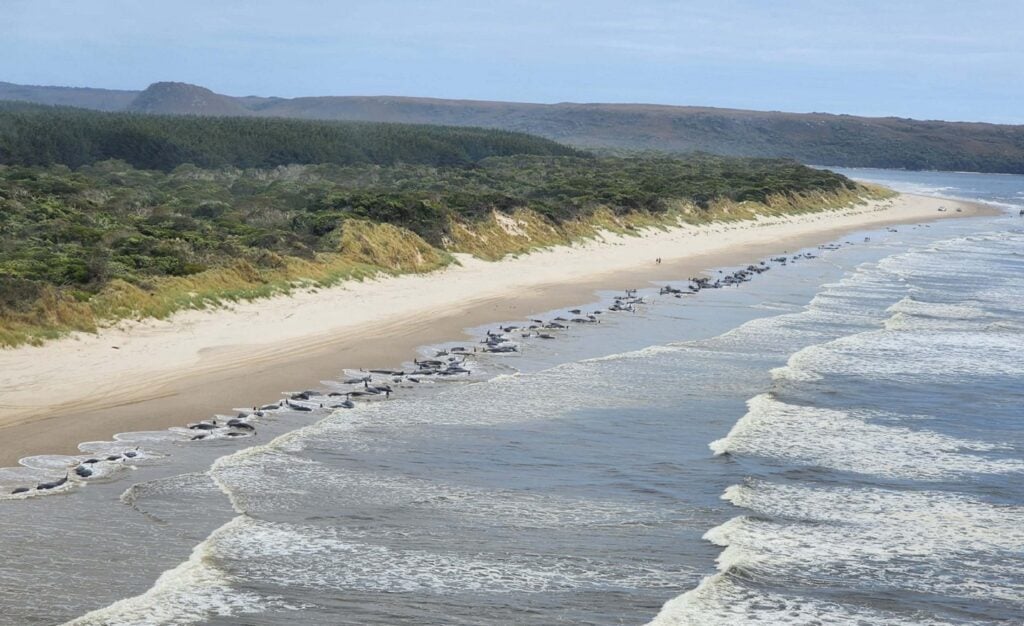An equine charity inspired by the children’s story of Black Beauty has offered to rescue the injured UK Household Cavalry horses that escaped and charged through London’s busy streets if they are unable to return to military duty.
Vida and Quaker, two of the five horses who ran after being frighted by builders dropping a concrete block, are still ‘seriously injured’ following Wednesday’s (April 24th) rampage.
The horses were spooked as they passed through Wilton Crescent in Belgravia and five people, including three soldiers riding the horses, were injured in three separate incidents during the six-mile scramble that lasted two hours.
One of the horses ran into a double-decker bus, smashing its windscreen, while another crashed into a black cab.
Vida, a grey horse, underwent surgery for injuries consistent with ‘serious lacerations’ and is now recovering in the Hyde Park Barracks, but there are fears the wounds could become infected – which may prove fatal.
The Horse Trust
The Horse Trust was was set up in 1886 by Ann Lindo who was inspired by the story of Black Beauty, which documented the life of a 19th century working horse, and has now offered the animals a home.
It usually takes in around 25 horses a year from the Police and the Army.
Director of Fundraising and Communications Jessica Tallman said: ‘If the decision was made for them not to return to work, we would always welcome them into the care of our charity.

‘The Horse Trust are experts in research and the care of service horses, and we have many. Most military working horses retire to carefully screened families or farms or live out their days peacefully with former soldiers who have struck up a powerful bond.’
Following the incident the British Army issued a statement which read: ‘Three soldiers who were injured would recover fully and return to duty.
‘Of the seven horses which were spooked, five tried to bolt and four, Vida, Trojan, Quaker and Tennyson, broke loose. Two of the injured horses were operated on last night, with one transferred to an equine hospital. All remaining horses are being closely observed.
‘We want to thank everyone who has shown such kindness and concern towards our soldiers and horses.’
Captain Skip Nicholls, Riding Master at the Household Cavalry Mounted Regiment, explained how they are deployed by the military.

He said: ‘Most military working horses will serve an eighteen-year career.
‘It’s not heavy work but they do have to carry a lot of weight with all the ceremonial uniforms, and we will never work a horse to the point they can’t continue at peak performance.
‘Working horses today are the equine equivalent of the civil servant. But unlike civil servants, they don’t get a pension when they retire so we step forward and offer these remarkable animals the retirement they deserve.
‘We want them to retire with some quality life left in them so they can enjoy a happy five-10 years retirement in a nice home.
‘The Horse Trust is fantastic – we’d love them to buy more fields so they could take more animals, but sadly it just comes down to acreage. They won’t compromise on standards.’
Jeanette Allen, Chief Executive of the Horse Trust, said: ‘Working horses today are the equine equivalent of the civil servant. But unlike civil servants, they don’t get a pension when they retire so we step forward and offer these remarkable animals the retirement they deserve.
‘It’s like the Royal Hospital Chelsea for Army horses.’









